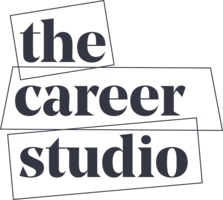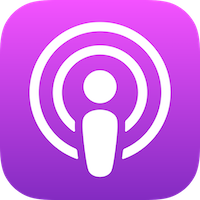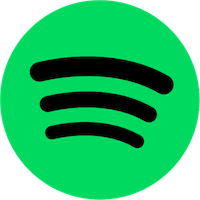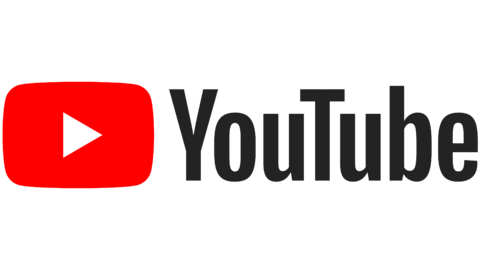How to take risks
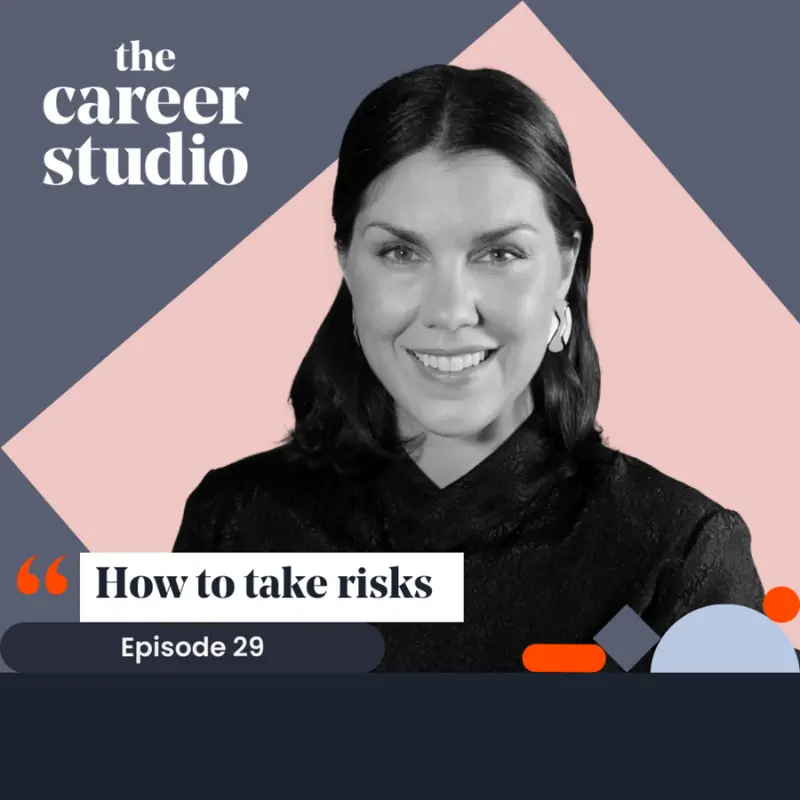
When you’re in transition you’re thinking about what could come next. And in this moment it’s easy to focus on everything that could go wrong. It’s easy to look at an idea that’s interesting and then write it off because it sounds ‘too risky’. But if you look for the risk you will find it in everything that is new. Usually anything worth having comes with a degree of risk. If this resonates with you you’ll want to check out this episode where I dive into exactly how to mitigate risk when it comes to evolving your career and moving into new spaces.
Are you ready to create an energizing career you love?
You can create a career that is simply an extension of who you are and how you want to live your life. If this sounds like what you’re after then schedule a consultation. We'll get to the bottom of what's going on for you. And exactly where you need to focus to bring your career and life into alignment. It's free!
For more from The Career Studio
Transcript
Welcome to the career studio podcast, where we boil down the noise and focus on the core concepts, essential for building an energizing career you love. One that is simply an extension of who you are and how you wanna live your life. Anyone can do it. It's just a matter of knowing what to focus on.
Hi there I wanted to start the episode today with a little bit of housekeeping.
I have a few announcements and requests to make, and the first one is kind of a new part of this podcast that I'm really excited about. It's going to be me answering listeners questions. And for me, that's a really nice structure to bounce off of. And then it gives is my listeners, you guys a chance to get your questions answered.
It's like ask Polly, but ask Anne. So yeah, if you are listening to this podcast, if you are going through your own career transition, if you're struggling with something professionally, That you think I would be able to answer for you, then go ahead and submit your questions and I will review them and I will choose the ones that I think people will get the most value from, right?
The ones that will apply to the most people. So if you would like to submit a question or a series of questions, you really can submit as many as you like, as often as you like. There's. No limit. You can head on over to my website, www. thecareer. studio forward slash podcast. And on that page at the top, it's going to be a link to submit your questions.
So yeah, really looking forward to seeing what everyone sends through and writing a lot of episodes off the back of those. The other quick announcement I wanted to make is just, if you are really liking this podcast, if you listen to it regularly, if you get value from what you hear, I would love, love, love you to please rate and review it.
It really helps me. It helps this podcast grow. It helps other people like you find the podcast and all of that makes a big difference to my business and what I'm able to do and the impact I'm able to create. So whether you're on Spotify or Apple, I would love you to please rate and review if you are enjoying what you're listening to.
Okay, so let's dive into the episode. Today, I actually did the first version of responding to listener questions. I texted some of my favorite listeners, people who I know are really into the work, really working on themselves and using this podcast to support them. And I asked them, you know, what's going on for you?
What are some of the questions you want answered? And one of my former clients asked me about taking career risks for risk averse people. And that's actually all she said. I didn't have more context. So I've just taken this topic and riffed on it in a way I think would apply to many people listening.
And I chose it because I think this comes up a lot for people when they go to make change. Right?
When they go to do something different in their life than they've done before. This can feel like a barrier. The idea of taking risks, and I think I'll start there. I think it's a problem to frame things as a risk. Take this with a grain of salt what I'm saying, but if you define your career ideas as risky, oh, that's a risky idea.
I can't do that. That's too risky. If you are already predisposed to being risk averse, it's going to be even harder for you to get started. If you think, oh, that's a risky idea, you're not going to even go near it. You're going to procrastinate even thinking about that idea. You're going to close it off to yourself before you even start because even considering it is too risky.
People who are very, very risk averse are constantly scanning their environment for what could go wrong. Their lens to looking at everything or where the pitfalls, where might it be risky, right? And so this is a whole lens that they're seeing the world through and this lens is a guaranteed dream killer, because if you're only looking at everything with where's the risk, this is too risky,you're going to stop before you even start.
So that's a watch out to start this episode. And I would say, you know, the first thing here is to reframe. Right? Choose a different channel in your brain than the risk channel. I'm not saying ignore the risk and I'm going to walk you through this episode on how to mitigate risk when you're thinking about evolving your career.
But an initial reframe could be whatever it is that you're, that you consider risky. What would be a way of playing with that idea? That is a lower risk, right? What's a way of taking a step towards whatever it is that you're thinking about that avoids whatever you consider risky? Okay, because oftentimes I see people thinking about the next step in their career as if it's all or nothing, right?
It's like, Oh, I couldn't be an entrepreneur. That's too risky. Because they think, Oh, you know, I'd have to go, you know, invest a hundred thousand dollars of my own money into a business and that's too risky. And then what if I fail? Right. It's like you're going like 25 steps in the future and asking yourself to be that person now.
Right. And that's like setting yourself up to fail. Right. It's terrible business advice to say, go from literally where you are now, which is probably just an idea and saying, okay, yeah, I, I don't want to quit my job and you know, yes, let's use me as an example. Right. I didn't just quit my job and become a coach because there's no beta test in that.
If I had quit my tech job, my marketing job, back in the day and just, you know, I read a book about coaching and I was like, oh, now I'm going to become a coach. I mean, that's like going to market and spending, you know, a 500 million marketing campaign on a prototype that you have never tested, that you have never liked to put any sort of research and development into.
I would never recommend anyone do that. The whole idea and what I'm going to talk about in this episode is mitigating risk through testing and learning. I don't consider myself a big risk taker. I also don't consider myself very, very risk averse because, because I think of the way I operate, I mitigate that.
That's what I want to talk through in the episode and I'm going to use my own career as an example. I mean, to get to where I am now, it's been a slow incremental build that probably started in like, let's say 2014. So almost 10 years ago. Okay. And broadly, it came in two phases, okay? To mitigate risk around exploring career ideas, evolving your career in a new path, I basically break that down into two phases.
So phase one is exploration. So let's say you're, you're working at a full time job and that job has a nice salary and some nice cushy benefits, but you feel. Like there's something more, there's something, and maybe, you know, you probably people listening will have varying ideas of, of how clear that is. You have this nice job and it has, you know, it ticks all of the rational boxes of what success looks like, but you are not feeling fulfilled in that job. Okay. The very first thing you have to do is you have to create boundaries with work. You have to create space to explore other things that interest you.
The first thing I work on with my clients is creating boundaries and creating space to do activities that fuel you because they're working with me and, and this is a way of exploring, but if you are working all the time, you don't create any space for yourself to even think about new ideas. So you have to create space. Okay. And in that space, this is what you do.
You research and read about things that interest you. You talk to people doing the things that interest you. You take a course, you start a side project, you volunteer for something, you kind of have fun experimenting. You have to create space to foster your interests. Okay, you're experimenting with things and seeing what draws my energy, you know, beyond just a little fun project, right? You're looking for something that continues to stick, that calls you, that feels energizing. Right? So this is kind of the exploration of your ideas.
So maybe you always had an idea to start a bakery. So why not start baking things for friends and family, right? Maybe you love wine, take a course on wine, join a club, join a wine club. Maybe you are interested in data analytics or product management. Take a free course on Coursera. And just see how you are doing, like starting your baking project, doing your wine club, you know, doing the free course on Coursera, you're going to see how these ideas capture you.
You could volunteer with a charity to do something that I'm not just saying give back, I mean, give back, but I'm talking about specifically stress testing, an idea you have, you can volunteer with someone who, you know, I have a client who is interested in data analytics and she's volunteering with a charity and she's doing some data analytics work for them.
So that's what I mean, right? So this is about seeing if you like it, you're like trying on clothes to see how they fit, see how they feel. Right. You're, you're looking for something that draws your energy. As I said, that feels fun and exciting. You're looking for something that makes you want to keep coming back.
You could have this idea in your head that like, Oh, I want to start a bakery, but you know, that's too risky. It's too risky. I'd have to put up all this upfront cash and like a bakery, you know, it's really hard and it's really hard to make money and all of this, right? So you're shutting down your idea before you've, it's like you, you've projected out 50 steps in the future and you shut it down.
But like, why not first just do baking in a really, really small incremental way. Do it in a way and just see if you actually like it, right? Because there's many ways to be a baker. Maybe you, again with the wine and you're like, Oh, well, you know, that doesn't make any money. Okay, maybe it doesn't. But also, you never know how you can bring something into your life and enjoy doing it and also maybe make some money as well.
But if you just shut it down because you're like, that's too risky and I don't think I could make a career around it. You're never going to actually know. So the whole idea here is just creating space to explore. And maybe at the very least you'll, you'll create a hobby that you do just for fun and is really rewarding.
And, and now you've created boundaries with work and allowed yourself to express this part of yourself and you end up being fine. Not turning it into a full profession, but you have restructured your career and restructured your life so that you're doing more of the things that interest you because that's really what it's about.
It's not about everything coming through one revenue channel. It's about structuring your life so that you can express the full version of you. And if you're not feeling totally fulfilled by work, you have to create space to foster your interests in another way. Start small and, and see what piques your interest.
For me, I've done tons of exploring in my career. So I remember in my twenties, I started like, a street photography, social account. I've started blogs. You could say all of my MBA was a very expensive and inefficient, but it was an exploration, right? I was exploring if this was me. And within that space, I also explored lots of different career paths, you know, consulting, design consulting, whatever.
And then you could also say that what I did after the MBA kind of working in tech was also an experiment. Those examples are a little bit different because I quit my full time job to do them. But the point is, you have to experiment with your ideas to see if they work. And if you want to keep your full time job, you're going to have to create space to explore things, right?
I've also done a wine course. That's probably where I thought of the idea. I also spent a whole portion of my MBA year experimenting with smart cities and networking and talking to all these people who were restructuring the way cities worked to be smarter. And I did lots of conversations with that and did a little project on that.
So I was trying on versions of myself to see what clicked and all of the things that I'm talking you through that I'm mentioning, none of that clicked. They were like projects that I forgot. I also did pottery for a while actually, and I just let them go, right? It's like I did it. That was fun. But my energy didn't continue to be drawn on, right? It wasn't like I wanted more. I did it and it just, just never flowed. I didn't want more. There was a block in some way or whatever in tech. I, I, I was miserable. So right. The energy wasn't flowing. So it wasn't the path, but I was creating space in my life to explore a lot of myself.
You know, I wasn't like, I'm going to quit my job and become a street photographer. You know, I'm going to be the next sartorialist and like, I'm going to quit my job in advertising to do that. No, I said, let me start this project on the side and see how I like it. And I did it a little bit, but it never captured me. So I just left it. Okay. But eventually I found coaching and coaching was exciting and, and coaching drew my energy, but I didn't just read a book about coaching and say, Ooh, this is really energizing and now I'm going to quit my full time job and become a coach. Right? I said, okay, I'm really liking this. This is exciting. How can I take another small step? Towards coaching. I didn't know what it looked like.
I didn't know I was going to run my own business. I didn't, I had no idea. All I knew is this thing called coaching feels really interesting to me. I really loved this book. It felt way more exciting and way more like me than any of the tech stuff I was doing at the time than any of the MBA stuff. And I was like, I really love this.
How can I do more of this? I wasn't projecting out and being like, Oh my God, it's risky to start your own coaching practice. And how will I get healthcare and how will I make money? I was just like, I want to find a way to do more of this thing that I like, who knows how it's going to weave into my life. I just want to do more of it.
And this is really phase two. It's like building on whatever is energizing. And you could build on multiple things that are energizing at once and just see what naturally drops off and what continues to build. Because that's what my story is with coaching, it was never like I'm going to become a coach and run my own business.
It was just, I really like this and I want to do more of this and this feels more energizing than what I'm doing in my day job. So from reading a book, I then took the next step to doing an intro course to coaching. And I really liked that intro course that felt exciting. And so I was like, okay, I'll, I'll sign up for the longer course.
When the longer course ended, I was like, I loved that. That was so awesome. Now I want to get the certification. And so then I did the certification. And I loved that. And I was meeting all these coaches and I was like, this is so cool. I could do coaching on the side, make a bit of money. So that's what I started doing at this point.
I was working in tech and then at some point here I switched to run marketing for a coaching company because I really liking it. But again, I was still working in marketing. I hadn't made the call to start my own business. I didn't know what kind of coach I wanted to be. I was still working for a job that paid me a salary and had benefits and the whole thing.
So I was now built like doing coaching on the side and getting paid to be a marketer, right? For a coaching company. And so I did this for a while. And the coaching on the side continued to really give me energy and felt way more exciting than the marketing I was doing. And then I started to develop my philosophy, you know, my four fundamental cornerstones to career fulfillment.
And I called my business the career studio. And so I kind of formalized the thing again, this is still on the side. Okay. And eventually I got to a place where the business was going really well and I had just started a business coaching course and I saw all these other people on the course who had businesses like mine who are a little bit further ahead of me and I was like, if they can do it, I can do it.
And so this is when I finally quit my full time job and became a coach. This was like four or five years after I first decided like, coaching is cool. I'd love to do more of this. This is very energizing for me. And I would say this is probably the riskiest moment, but because I had taken these small incremental steps, fostering what was interesting and just only continuing to build on it because.
I felt energized by it and doing it in a really low risk, let's say way. I had all of this runway and, and belief in myself because I'd been doing it for four or five years, right? That's totally different than me reading a coaching book and say, now I'm going to become a coach and quit my job. Right? So I had all this momentum behind me.
I had all this experience behind me. Plus, I had chosen to be in this coaching course. And so all of that gave me the self confidence to say, Yeah, this is a bit uncomfortable, but I would prefer to go for it because I believe in myself. I'm really enjoying this. This is so much more energizing than what I'm doing in my day job, right?
Running marketing for someone else's business. You know, I didn't get to do. What I get to do now, I didn't have the freedom. I didn't have any of the stuff I wanted and I could see very clearly that this was going to be right. It was like, and you can do this. This is the moment. Okay. So I had all this belief in myself to be able to take that quote unquote risk in the moment.
That was the product of small incremental steps. Over 4 or 5 years, but really longer because remember prior to those, you know, the 4 years before I became a full time coach entrepreneur, I had also spent a couple years exploring and trying on a lot of different versions of myself and saying, no, not this.
No, not this. No, not this. Right? So really, it was the product of like 8 years. Of work to finally get to this point and say, okay, now I'm going to become an entrepreneur, right? Again, it wasn't like I just woke up one day and said, I'm going to quit my job in advertising. And I'm going to run my own coaching practice because you have to evolve as a person to get there.
And you want to evolve in these small incremental steps. Always following what feels interesting, what feels fun, and only continuing to do it if the energy is drawing you. Okay, so what's important to highlight actually in this moment, when I was in that moment of deciding, Do I stay at this job or do I leave and do my own coaching business full time?
What's important to highlight is that both of those options were uncomfortable. Right? Because it's either the familiar discomfort of working in this job that was no longer energizing to me where I felt like I was building someone else's business, where I was having to be a full time marketer, which is really not my zone of genius, or it was the unfamiliar discomfort of starting my own thing.
Of like, you know, not having a day job of being responsible for my own revenue. Right. But what's important here is that both of them are uncomfortable. And sometimes we forget to look at the discomfort of the familiar, and we only focus on the discomfort of the unknown. Right. We're so busy telling ourselves a story that the discomfort of the unknown is too much and too risky that we forget the risk of staying with what.
We know, because remember, if you're waiting to have no fear and absolute certainty about something, you are going to wait forever. If you're waiting to feel totally comfortable, you are never going to feel that way. Okay. Because doing something new is inherently uncomfortable. There's always going to be some level of risk.
Right? And you can mitigate that risk by taking small incremental steps and following what feels interesting. But at the end of the day, there's still going to be risk. And personally, in my opinion, the greatest risk is to end your life wondering what if feeling like you left something on the table.
Right? I am here to eke out every possibility from this one precious life that I have been given. I'm here to show myself what I'm made of and what's possible for me. I'm here to be an example to myself and my community and the generation that comes after me. I mean, what is life besides showing yourself what you're made of?
Besides showing yourself who you really are, right? The 25 year old version of myself would have never believed that I can do this. And yet I've shown myself I can, and I know I'm going to push myself to do even more than I have now. I'm sure, you know, in 15 years, the version I am today is going to be so fucking excited of what I do 15 years in the future.
Okay. But the only way to show yourself who you are and what you're made of is to take some measured risks. Right. And remember, I'm not telling you to put a million dollars behind an untested product. I outlined how to take mitigated risks by taking small incremental steps and building on what feels energizing, but I'm telling you rather the greatest risk is being so afraid of the uncertainty, which is unavoidable when you do new things, but being so afraid of the uncertainty that you end up living in a little comfortable box while always feeling like there's something else or something more that you want to be doing.
Okay. This is your one life. And if you're going to go do interesting and different things from whatever you are doing now, there's going to be some level of uncertainty, some level of risk that is unavoidable. So take small steps. Follow what's interesting and energizing and bring that uncertainty and fear along for the ride. Have a great week.
Hey, if you're ready to create an energizing career you love, one that is simply an extension of who you are and how you want to live your life. Then I wanna invite you to schedule a consultation. We'll get to the bottom of what's going on for you. And exactly where you need to focus to bring your career and life into alignment. It's free. Just head on over to thecareer.studio/schedule to find a time that works for you, or if you're enjoying and getting value from these episodes, I'd love you to leave a short review on whatever podcast app you use.
This helps other people like you find and get value from the podcast too
